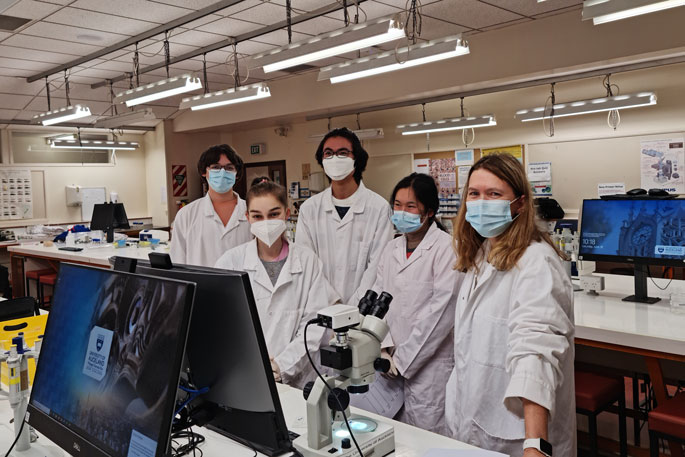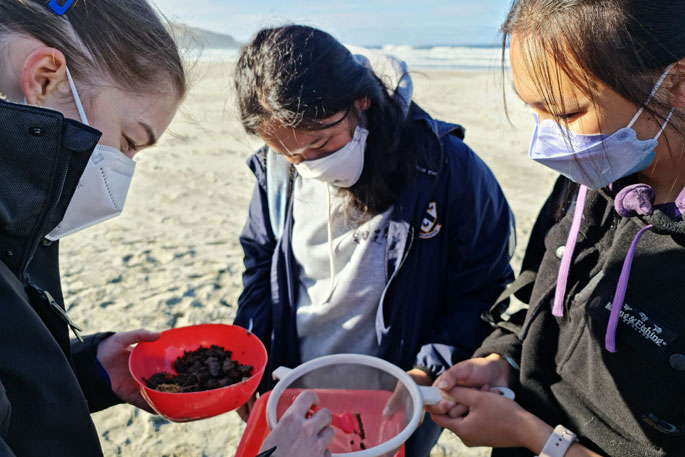Olympiad dreams of New Zealand's best biology students are in danger of being crushed after being told the money originally allocated to them is now unavailable.
The International Biology Olympiad is this year's premier international event for high school biologists and began in Armenia on July 10.
Qualifying for the International Olympiad is nothing short of a Herculean feat.
'In order to compete you have to be one of the top four students in a country and you have to be the winners of your national training and selection program,” says Dr Sharples.
Dr Angela Sharples, the chairperson of the New Zealand International Biology Olympiad Organisation, is vehement about the impact current biology students will have in New Zealand's future.
'There are previous graduates of the NZIBO program that are researchers at Oxford University studying cancer.
'One of the graduates is the student care person for Princeton University's student association. The diaspora of NZIBO are all around New Zealand and all around the world making a difference.
'These are our top students- they are our future leaders.”
Dr Sharples says the Olympiad and program leading up to it have far reaching positive effects.
'It helps these students form relationships with academics and form relationships, with older student who are at university, and supportive networks all around the world now from NZIBO.”
'If a New Zealand student goes to Harvard there'll be a person there who was in the IBO who could help them deal with issues they may face. They form supportive networks with students who are passionate about biology.”
She says the organisation doesn't receive any government support, does everything voluntarily, and uses a bottom up funding model from having high numbers of students at their entrance exams.
There was however, a fund that was created in 2003 with a budget of $30,000 and grew to $250,000 until it was paused because of travel restrictions.
'MBIE administered by Royal Society has always had a fund called the Talented Schools Travel Award and that is for students who are working in academic subjects who travel internationally if they're representing New Zealand.”
A portion of the 2020/2021 budget was spent on enabling the competitors to participate virtually.
 Jacob Miller, left, Sarah Ellis, Richard Li, and Janet Guo with Dr Hilary Sheppard.
Jacob Miller, left, Sarah Ellis, Richard Li, and Janet Guo with Dr Hilary Sheppard.
The remaining $110,000 was spent on development of science resources for students to access during Covid-19 lockdowns, funding for the Science Media Centre to respond with information to media during the pandemic, and the New Zealand in Space exhibition.
'What makes me upset for New Zealand and these students is that they (the NZ Government) put this fund on hold for Covid and they spent the money on other things. They spent the money on a space exhibition. That's lovely, that's a nice to have, but how does that change the lives of the people who go and look at an exhibition? Does going to the museum change your life?”
Aside from the budget issue, Dr Sharples is frustrated by the lack of communication from the Ministry of Business, Innovation and Employment.
'The MBIE said ‘locally relevant initiatives within New Zealand are being created to make the most of the countries excellent research and learning opportunities,' well I'm sorry but we already exist and they have never spoken to me or any of our stakeholders.”
'They haven't spoken to the organisations that support these kids, not to the universities who support us to offer these opportunities to the kids, and they haven't spoken to the students – they haven't spoken to any of us.”
In a statement supplied to SunLive, MBIE special investments manager Helen Sillars says MBIE suspended funding to the Talented School Students Travel Award scheme in 2020 due to the risks associated with international travel during Covid-19.
'The Award is currently on hold while MBIE and Royal Society Te Apārangi consider improved ways to support students with a passion for science, technology, engineering and maths (STEM). This could, for example, include locally relevant initiatives within New Zealand involving excellent research and learning opportunities, alongside select international opportunities.
'Following the disruption due to risks associated with international travel during Covid-19, which led to the award being put on hold, we feel now it is timely to assess whether changes are needed to ensure a broader range of opportunities are available to students.
'We also want to see whether different types of opportunities should be offered as part of the award.
'Funding for the Award comes from the Science in Society appropriation, which supports a wide range of activities to engage New Zealanders in science and technology and can also be used to enable other priority initiatives.”



0 comments
Leave a Comment
You must be logged in to make a comment.